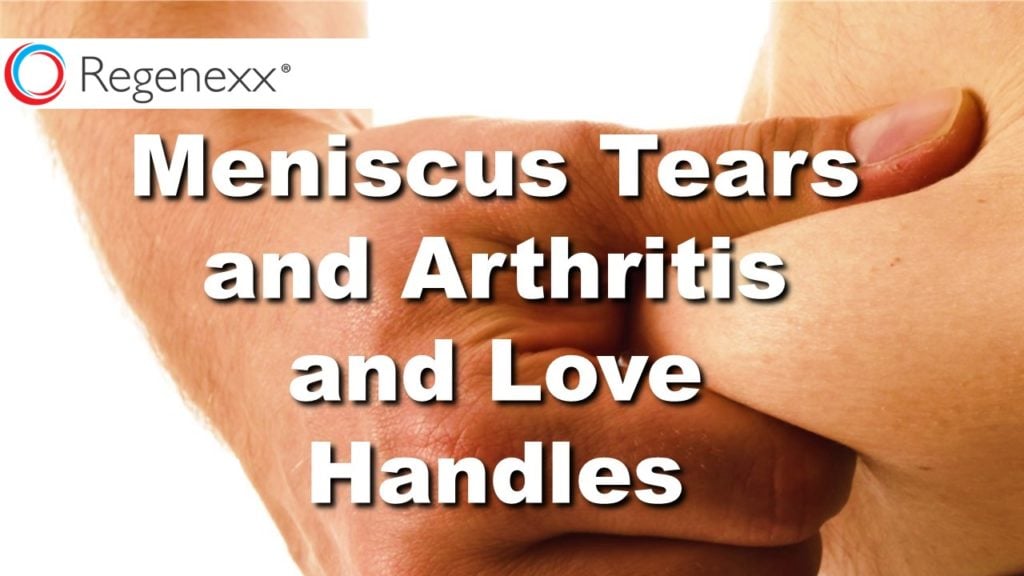Your Meniscus Hates Your Love Handles More Than Your Cartilage Does!
We see a lot of knees. We treat everything from ACL’s and LCL’s and PCL’s to knee caps, to hamstring tendinopathy and pes anersine bursitis, to knees deemed by others in need replacement and everything in between – but clearly the two most common knee conditions we see by a long shot are knee arthritis and meniscus tears. Why do these two issues so often present together, and why are they so common among a certain group of people? A recent study provides some insight.
The meniscus is an incredibly important part of the knee. It’s the shock absorber of the knee joint. The meniscus is also a spacer that protects the cartilage of the femur and tibia from too much force, helps to give structural integrity and stability to the joint, and assists in guiding motion. Protecting the cartilage is crucial as it’s the slippery surface of the cartilage which allows the femur and the tibia to glide past each other freely. When parts of the meniscus are injured, or removed during arthroscopic surgery, the cartilage is unprotected and arthritis occurs as the cartilage now takes the force directly, and breaks down. But it’s not that simple, there’s a third player here.
The study set out to compare the effects of adipokines (cell signaling proteins secreted by fat) associated with osteoarthritis on cartilage tissue and meniscus tissue. To do this they grew both cartilage and meniscus tissue in culture and individually introduced the same group of adipokines to both. The results were interesting as they showed that meniscus tissue was much more susceptible to breakdown from adipokines than was cartilage tissue, suggesting that higher adipokine levels due to obesity can damage the meniscus through biological signaling pathways.
The upshot? This was an in-vitro study, but it’s backed up by many in-vivo studies and what we see in patients. That third player is the bad chemicals produced by too much extra fat called adipokines and those can really damage the meniscus. Unfortunately though, since the knee is a complex system of many moving parts each affecting the other, as the meniscus breaks down, so does the cartilage it now can’t protect. Is there some place in that system going awry that we can intervene? There is. We have the opportunity to reduce the level of bad chemicals produced by keeping our weight under control – as it turns out those love handles are a bigger threat to our meniscus than our ego! Consider a strict Paleo or low carb diet to help protect your much needed meniscus.

If you have questions or comments about this blog post, please email us at [email protected]
NOTE: This blog post provides general information to help the reader better understand regenerative medicine, musculoskeletal health, and related subjects. All content provided in this blog, website, or any linked materials, including text, graphics, images, patient profiles, outcomes, and information, are not intended and should not be considered or used as a substitute for medical advice, diagnosis, or treatment. Please always consult with a professional and certified healthcare provider to discuss if a treatment is right for you.

